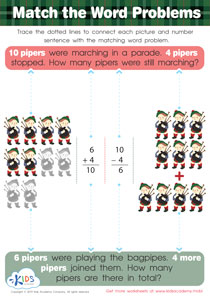Counting skills Normal Addition Worksheets for Ages 4-8
11 filtered results
-
From - To
Boost your child's math confidence with our Counting Skills Normal Addition Worksheets, specially designed for ages 4-8. These engaging, age-appropriate worksheets help young learners develop fundamental addition skills while enhancing their counting abilities. With colorful images and fun activities, children will enjoy mastering basic math concepts. Our worksheets are perfect for parents and teachers seeking to provide extra practice or introduce new skills in a structured and enjoyable way. Equip your children with the counting skills they need to succeed in math through our thoughtfully crafted, educational resources. Start their math journey today!
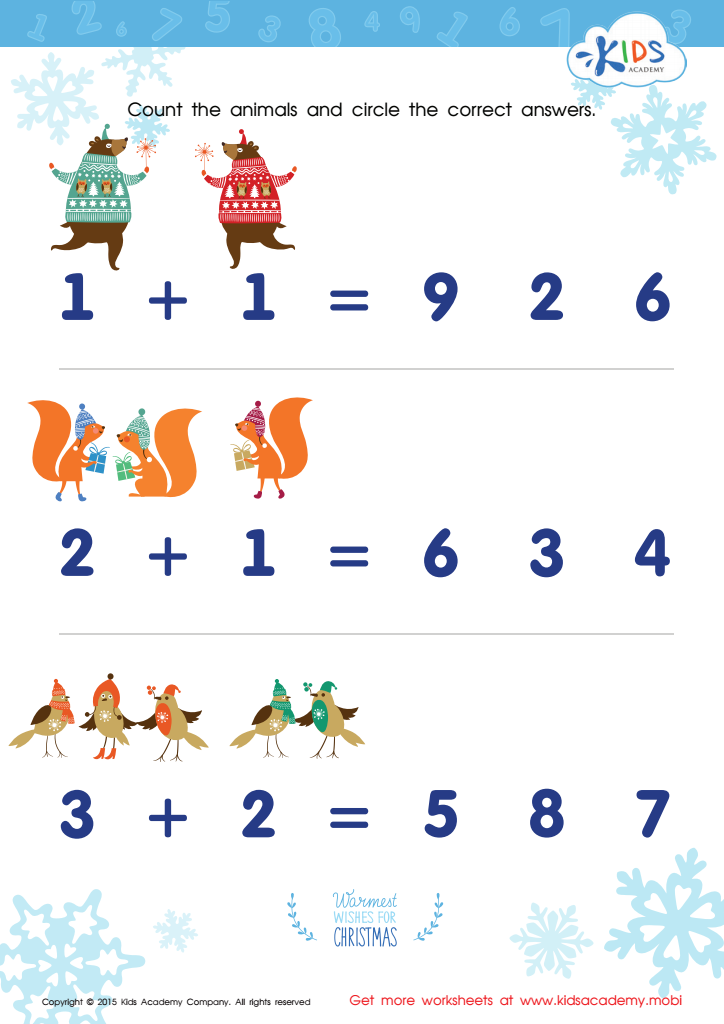

Count Funny Animals Worksheet
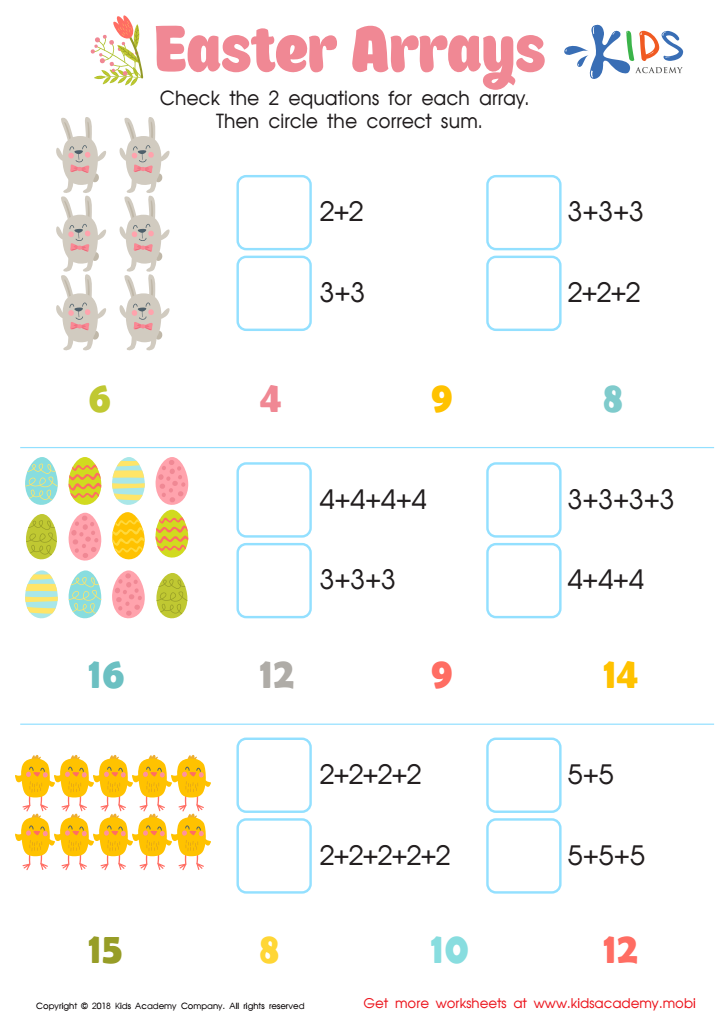

Easter Arrays Worksheet


Adding Flower Petals Worksheet
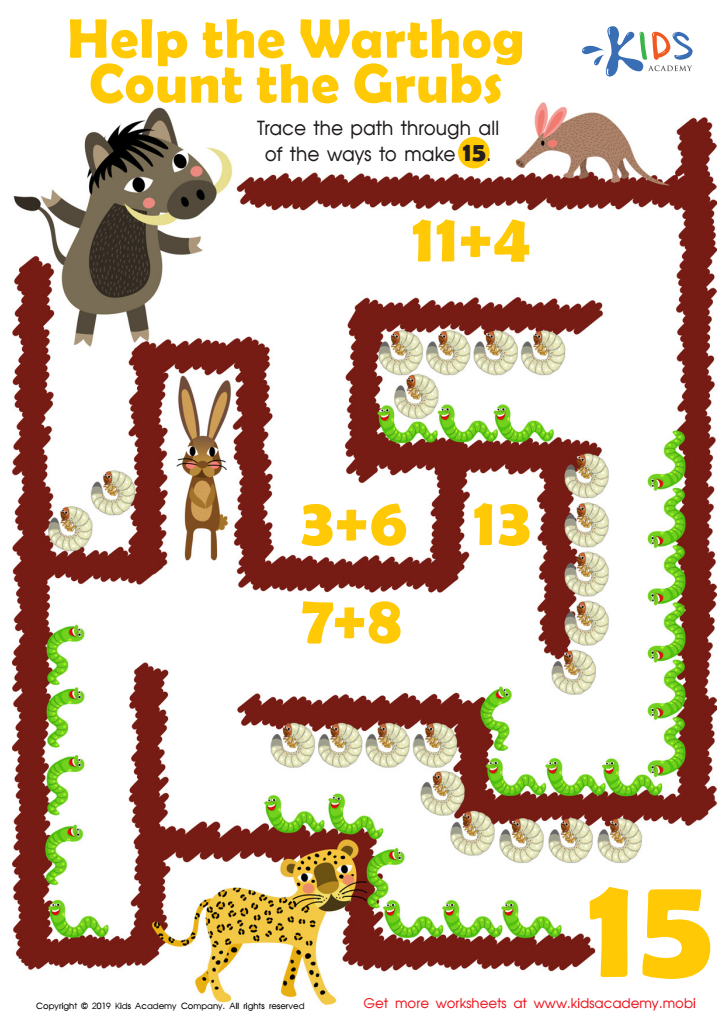

Help the Warthog Count the Grubs Worksheet
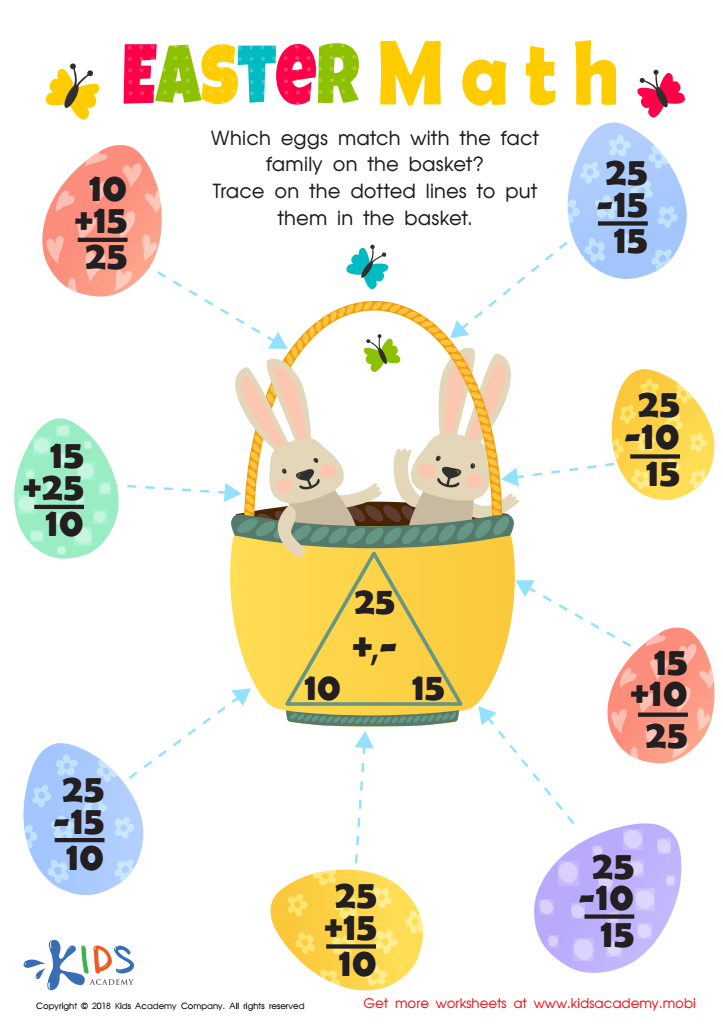

Fact Families: Easter Math Worksheet
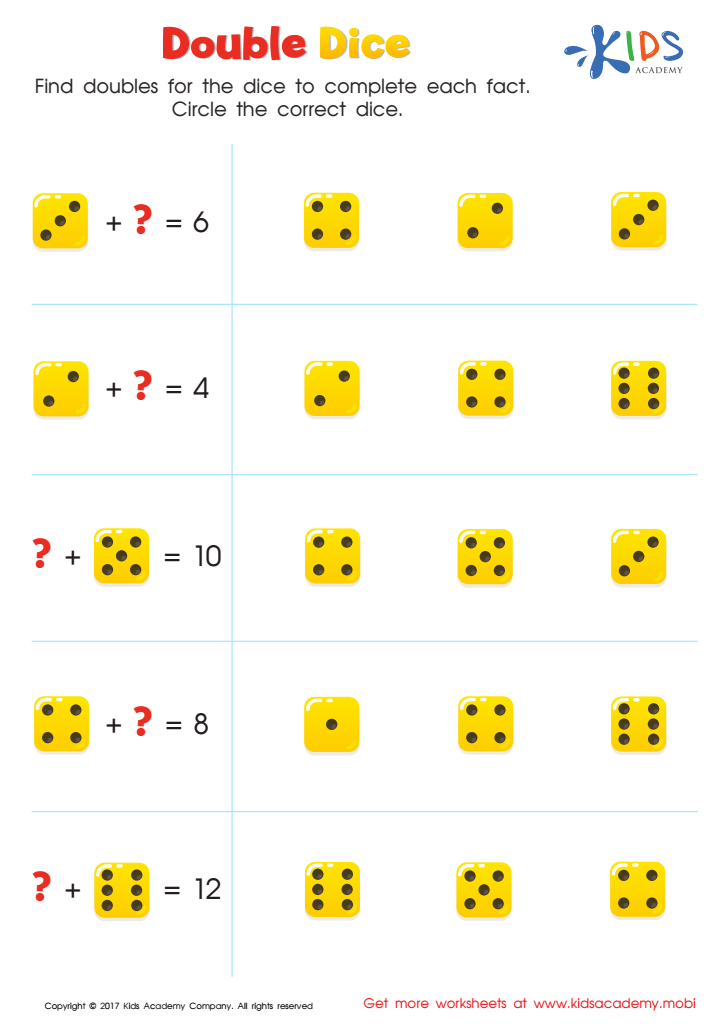

Addition Facts: Double Dice Worksheet
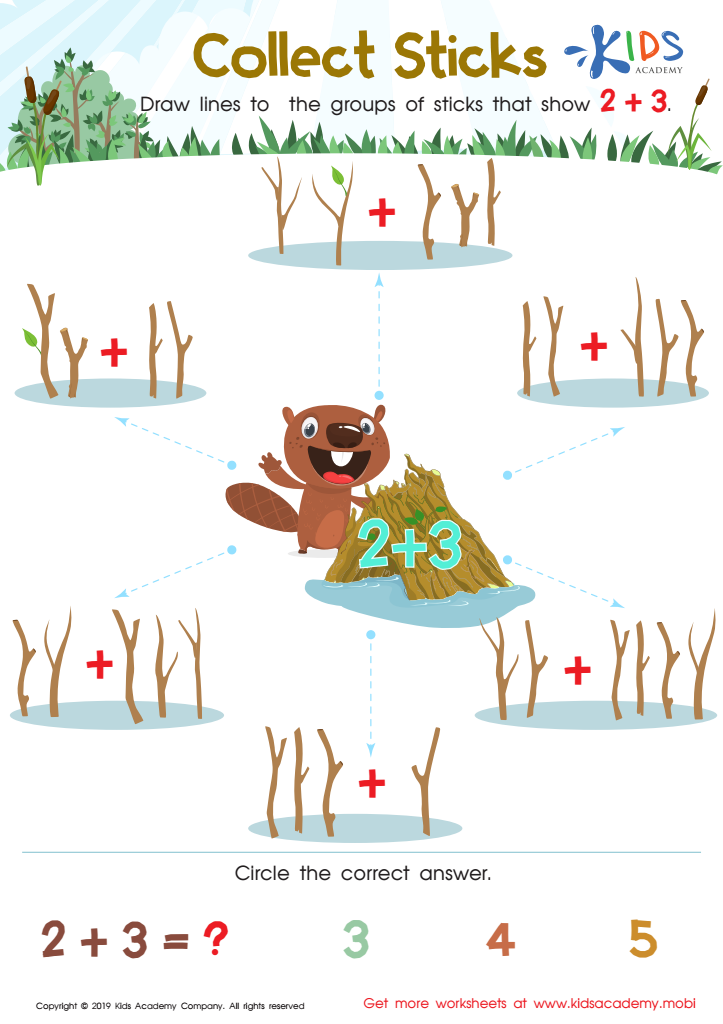

Collect Sticks Worksheet
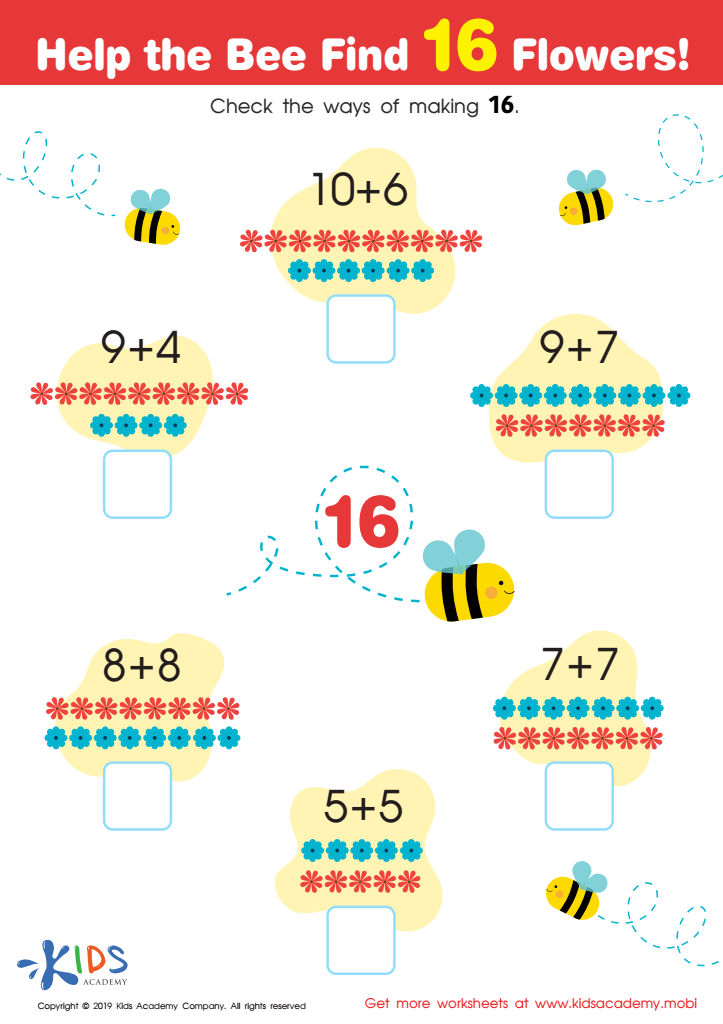

Help the Bee Find 16 Flowers Worksheet
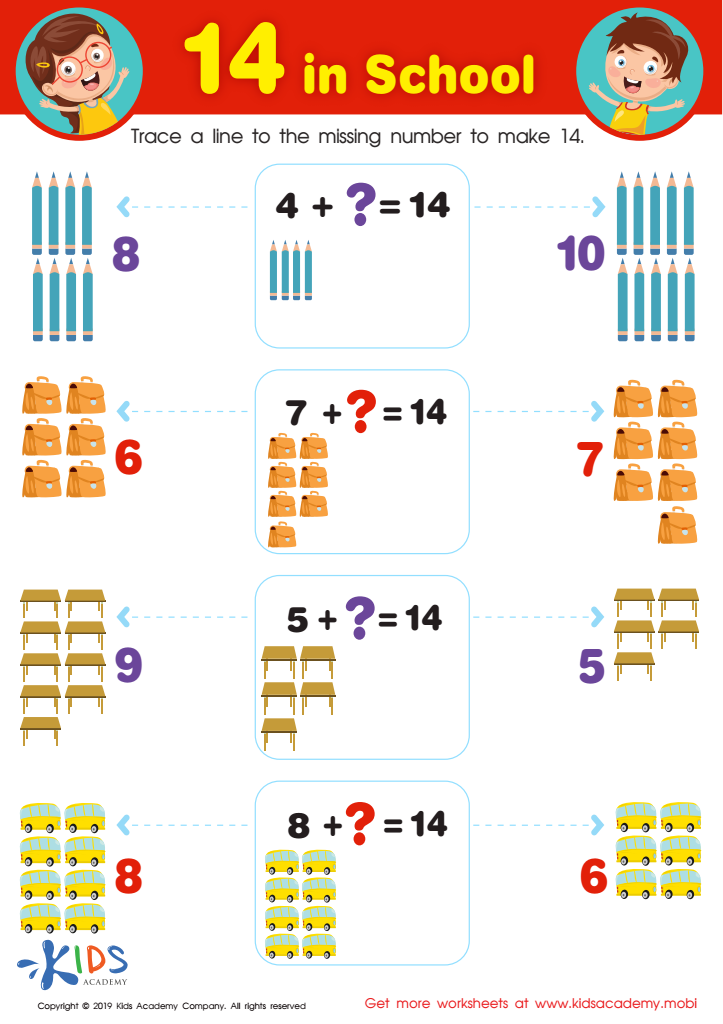

14 in School Worksheet
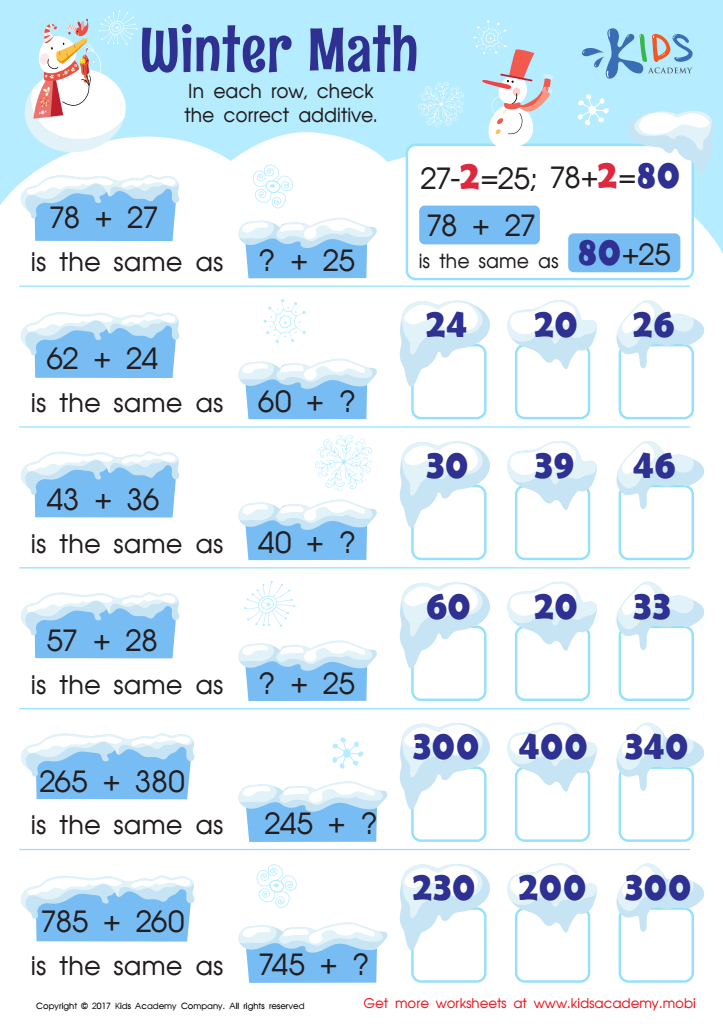

Free Addition Worksheet
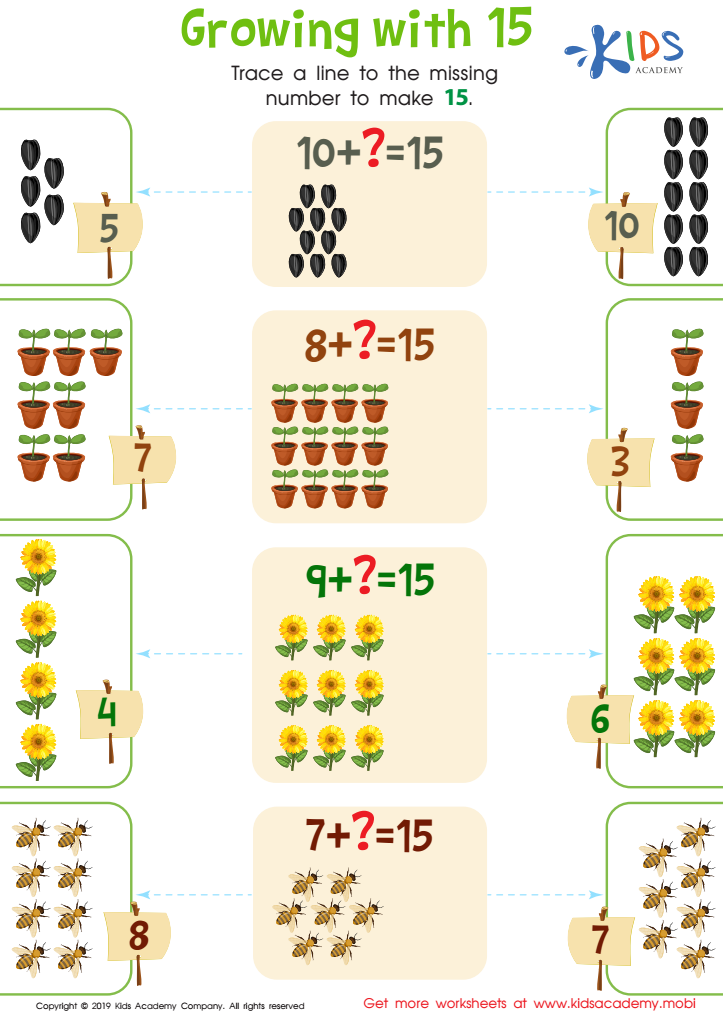

Growing with 15 Worksheet
Counting skills and basic addition are foundational for children aged 4-8 because they lay the groundwork for future mathematical understanding and cognitive development. Mastery of counting helps children comprehend the concept of numbers as being more than just symbols – they represent quantities. When kids count objects, they learn one-to-one correspondence, the idea that each object counted corresponds to one number, fostering numerical recognition and memory.
Early proficiency in addition prepares children for more complex arithmetic competencies. It enhances their ability to recognize patterns and understand the relationships between numbers, which are essential skills not only in mathematics but also in problem-solving across subjects. Moreover, early success in mathematics builds confidence, encouraging a positive attitude toward learning and academic challenges.
Parents and teachers play a crucial role in nurturing these skills through engaging activities, interactive games, and real-life scenarios that reinforce mathematical concepts. For example, counting toys, clapping hands in rhythm, or simple addition exercises with their favorite snacks. These practical experiences make learning enjoyable and relatable.
In sum, parents and teachers should prioritize counting and basic addition to provide the cognitive and emotional support children need for long-term educational success, fostering a love and curiosity for learning that extends beyond math.

 Assign to My Students
Assign to My Students









